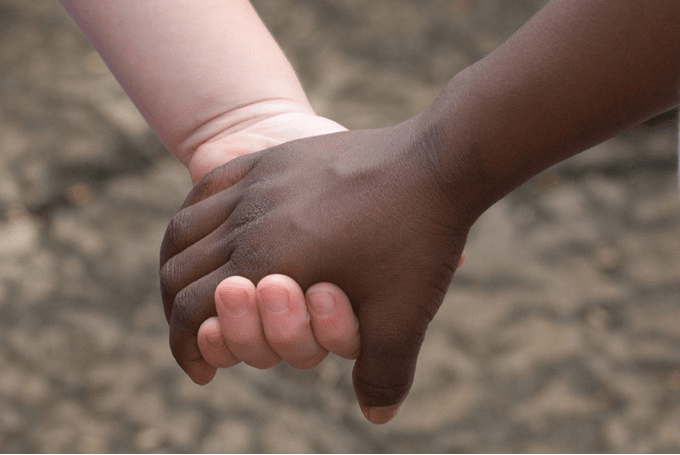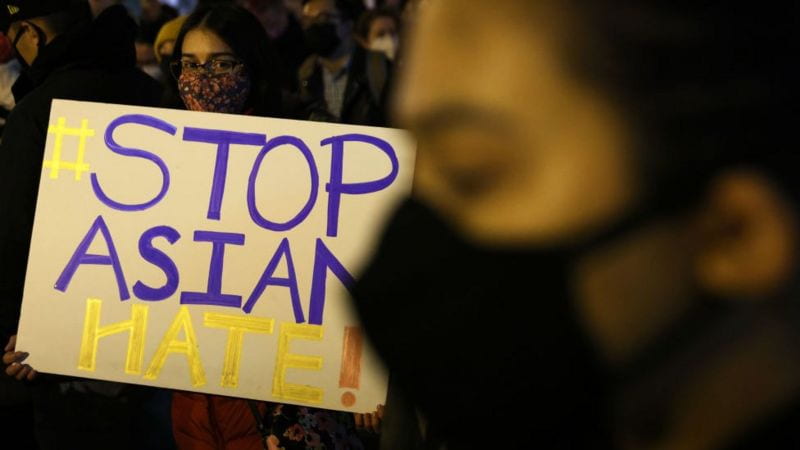“Yo, is this racist?”
Luodong Zhang, Xinyu Liu
4/5/2021
Luodong: Hi, Xinyu. Welcome to “Yo, this is… Racist” Column. As we all know, the topic of racial discrimination has always been very hot and hard. Can you share some ideas about racial discrimination with us?
Xinyu: Hi, Luodong. Hi, every reader. Thank you for giving me this opportunity to share my views on racial discrimination. From my point of view, racial discrimination is due to the following three reasons. First, human factors. Human beings are evolving, and in the process of evolution, the natural genes of “seeking advantages and avoiding disadvantages” are preserved. Imagine a primitive person, in his familiar environment, dealing with familiar people is certainly more relaxed, but once he enters a strange environment, dealing with unfamiliar people, he will naturally feel alert and insecure. Among races communication, of course, they belong to unfamiliar fields. It’s not difficult to understand the natural hostility and wary attitude towards unfamiliar races. The second, the ruler factor. The rulers gave the masses a wrong cognition through their “Single Story”. Finally, the behavior of excessive possession of resources can be rationalized and legalized by the rulers. In other words, the ruler factor refers to a country, a regime, or a family power. As a ruler, establishing a common enemy stimulates the group strength and collective sense of honor, so as to transform the internal contradictions of the race. The easiest way to set up the enemy is to set up the hatred of the other race. By distorting their culture and uglifying the history of other races, ordinary people will easily define themselves as “one” and different races as “the other”. In the end, it is not easy for ordinary people to feel “guilty” when “the Other” you hate gets hurt. This is also a very important reason why Hitler was able to stimulate the slaughter of Jews in Europe during World War II.

Third, Racial discrimination caused by cultural factors refers to the meeting of people from different cultural backgrounds, so that people often understand their things from their own cultural perspective and with their own values, which sometimes leads to mutual misunderstanding and conflict. The cultural differences between China and the United States are a very clear example. Among the collective interests and individual interests, the Chinese often advocate that the collective interests are far greater than the individual interests. Therefore, the very popular movies in China are often the contents of saving the whole group at the expense of themselves. The United States, on the contrary, pursues individual heroism. Only by saving themselves can we save the whole collective. That’s why in American movies there are characters like the captain of the United States and iron man.
Luodong: well, Thank you for your analysis of the causes of racial discrimination. Protests against racial discrimination are going on every day. The Lakers met with NBA teams such as the clippers and bucks and decided to kneel down on one knee to protest against racial discrimination when the national anthem is played at the beginning of each game. Do you think there is a way to eliminate racial discrimination?
Xinyu: Although we all know that racial discrimination is a narrow thing after civilized education, I don’t think it can be eliminated. Only through our efforts can we reduce this kind of discrimination due to racial differences to some extent. First of all, we should change the perception of black advocate violence. I made a small survey on the history and culture of African blacks. I learned that in ancient times, many primitive tribes also opposed violence and advocated honesty. Like, in Achebe’s novel “things fall apart”, Okonkwo’s tribe had set the perfect legal system and a social operation mode that could make people live and work in peace and contentment. Secondly, I think everyone’s opportunity should be fair. For example, although black people are dominant in NBA, if there is a white man who plays very well, we will not despise him and refuse to let him play just because he is white, right? Similarly, there should be affirmative action in the workplace. In the work, the boss should choose the employee whose work efficiency is higher and performance is better, not whose skin color and appearance are more liked by the boss. In such a virtuous circle, human society will progress.

Xinyu: Recently, because of the outbreak of the covid-19 virus, American society has become unstable. Do you know of any other racial discrimination? It would be better if there were specific events.
Luodong: For me, I think the most painful thing was the shooting in Atlanta. This incident resulted in the deaths of nearly a dozen people and brought the issue of discrimination against Asians back into the spotlight.
Xinyu: Yes, it shocked me too, and that’s what we’re talking about today, racism. It has been an unfortunate year for all countries in the world, with COVID-19 leading to many deaths and social unrest leading to various cases of racial discrimination. Can you give us a little bit more detail about what happened in Atlanta?
Luodong: Sure. On March 16, the carnage lasted nearly three hours. The deranged killer rampaged through three massage parlors, leaving four Koreans, two Chinese, a white woman, and a white man dead. Police arrested him around 8:30 p.m. in the south of Atlanta. He was planning a trip to Florida to continue his killing spree. Asians were killed wherever he went. This is just what I learned from the media.

The memorial sits just outside Gold Spa after the deadly Atlanta shooting.
Xinyu: Yes, the motive of the killer has not yet been determined, except that he was not mentally ill. Do you think this attack was an act of racial violence?
Luodong: I’m not sure if I know enough about racism, although he denied a racial motive, the incident marked the culmination of a year of discrimination and violent crimes against the Asian community. I don’t understand why there is such hatred.
Xinyu: The incident led many Asians to march and hold up “Stop Asian Hate” signs. Could you tell me about your experience of studying in the United States if you have encountered racial discrimination?

Luodong: To be honest, I didn’t know anything about this before I came to the United States, and the news I saw made me worried. However, after I came to the United States, I found that there was almost no such discrimination in my daily study and life. Professors treated students fairly and gave me a lot of help. When I asked teachers and classmates questions, they answered me warmly. When I was a freshman, I lived in an apartment at the university. My roommates were very friendly to me. They would ask me to play basketball together, introduce me to the delicious restaurants around, and also ask me to watch football games on Gameday.
Xinyu: Sounds good! I still like to believe that most people have no animosity towards Asians.
Luodong: I think there are some stereotypes about Asians. As far as I can see, the majority of Asian people are working in service industries like laundry, restaurants, working for other people, etc. Most Asians do not live a rich life, and this level of wealth tends to lead people to think that Asians are the easy type to be bullied. I think this may be one of the reasons. In my opinion, in racial discrimination cases, there must be one party identified as “Others”. Because of the long-term low social status of Asians in the United States, it is difficult for Asians to truly integrate into this culture. As for the “Others” of De Beauvoir, the sense of national common sense can hardly be truly equal. Asians have always been regarded as outsiders.
Xinyu: In history, the United States is a multi-ethnic country with strong ethnic inclusiveness. Under the leadership of the first president, Washington, the United States won the War of Independence and promulgated various political laws, gradually becoming an independent and sovereign country as it is now. So, do you think this kind of discrimination problem can be solved or easily solved?
Luodong: The United States is already a multi-ethnic society, and the current turmoil is largely due to the government’s inaction and the people’s stereotypes and prejudices against other races. There are few courses in schools that really introduce students to foreign cultures. But because of the different customs and cultures of different countries, it is difficult to achieve true unity. In my opinion, such cultural differences are not the reason for discrimination. The main reason is to eliminate the prejudice in people’s minds, enhance social inclusiveness, and weaken the leading news. U.S. President Joe Biden on Friday condemned the rise in anti-Asian violence in the United States and called on all Americans to unite against hatred in a speech during a visit to Georgia. I hope that such discrimination can be weakened or eliminated.
Works Cited:
https://image.baidu.com/
https://www.16sucai.com/2013/10/27681.html
https://www.bbc.com/zhongwen/simp/world-56467496
https://www.nytimes.com/2021/03/17/us/atlanta-spa-shootings.html







